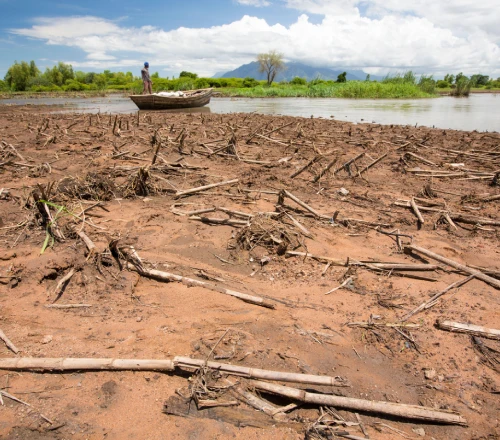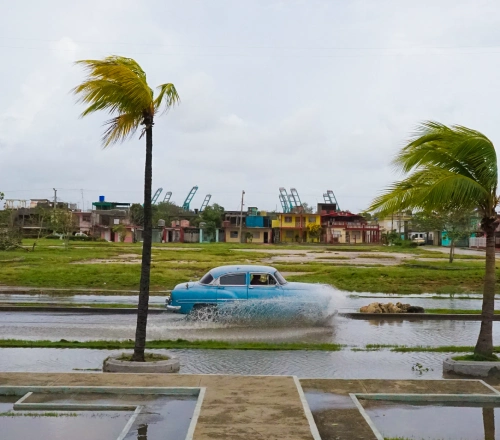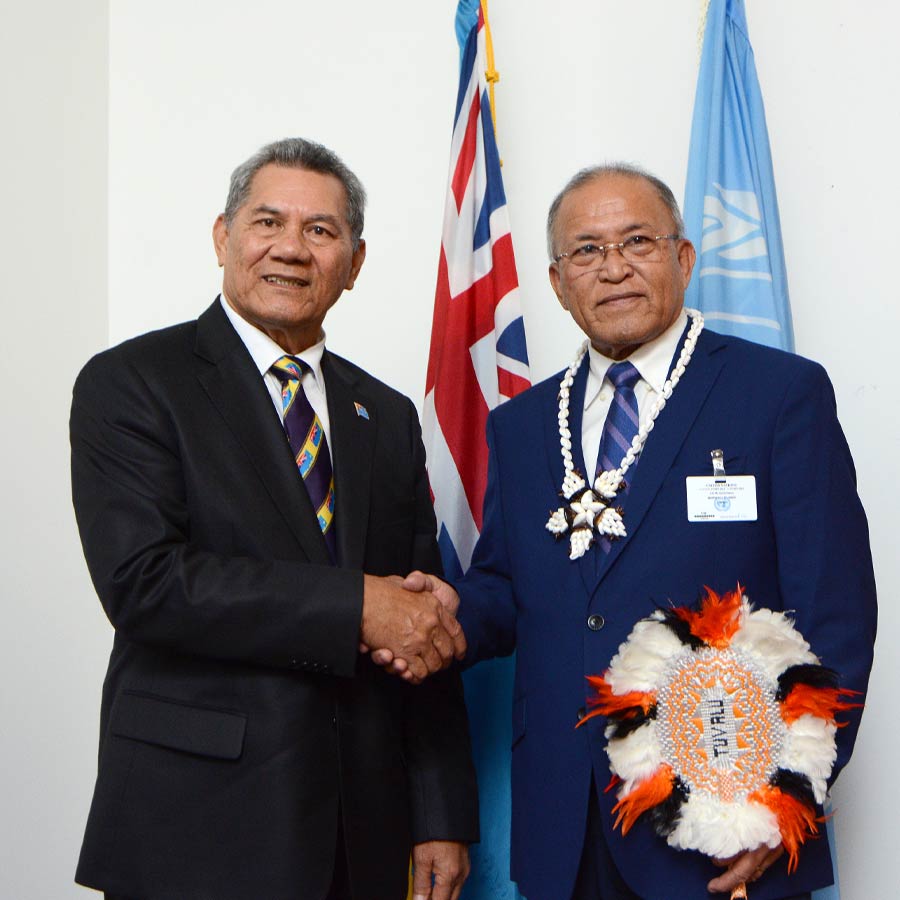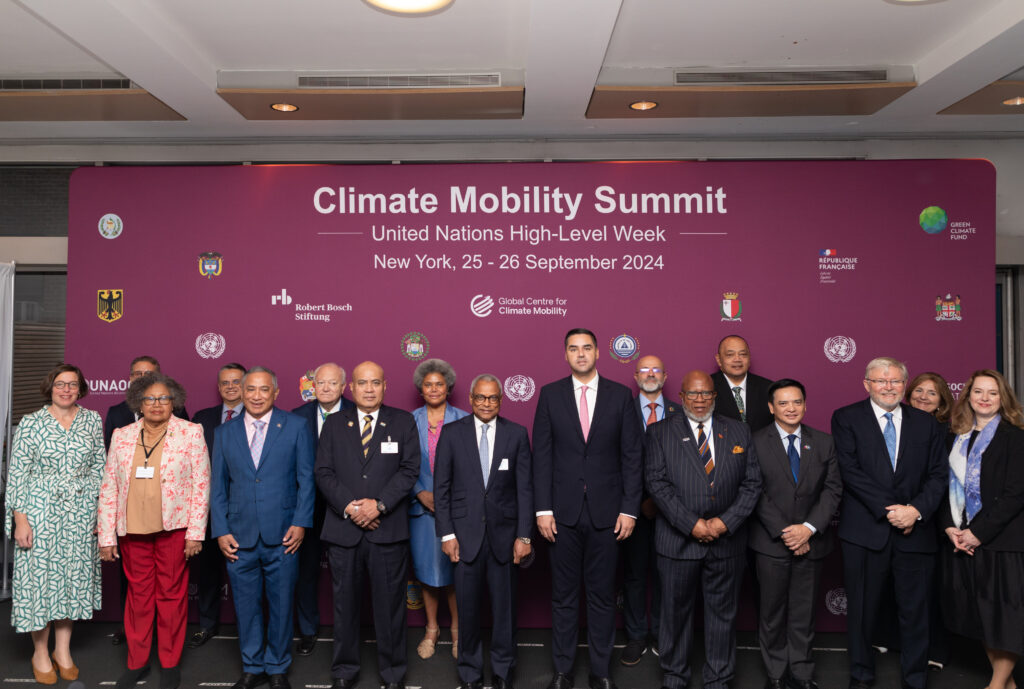New York, NY, 26 September, 2024 — As world leaders and policymakers gathered in New York City for the UN High-Level Week, a milestone event took place: the Global Centre for Climate Mobility (GCCM) hosted the second edition of the Climate Mobility Summit (CMS) on September 25-26, 2024. The Summit brought together the largest contingent of global leaders outside of UN Headquarters, uniting policymakers, academics, and young leaders from affected communities. Their discussions centered on the evidence, policies, and actions necessary to enable positive adaptation journeys for people and communities on the frontlines of the climate crisis.
“For Tuvaluans, everything is at stake…We reaffirm that people have the right to remain and should be supported in their efforts to protect the places they call home,” said H.E. Feleti Penitala Teo, Prime Minister of Tuvalu. “And the rights of persons forcibly displaced by climate impacts must be upheld, whether they move within their countries or across borders.”
Over two days, affected community representatives and policymakers gained awareness and knowledge of relevant climate information and data, as well as legal, policy, and financial tools needed to anticipate, prepare, and plan for climate mobility as part of community transitions in affected countries.
“We are here because we have one thing in common: the climate crisis is fundamentally altering the fabric of our societies,” said H.E. Mr. Dennis Francis, President of the 78th UN General Assembly. “And precious unique cultural heritage – nurtured over centuries – is gradually slipping away. This crisis is threatening to increase loss and damage.”
Sharing the UN High-Level Week with the UN Sea-Level Rise Summit and the Summit of the Future, the Climate Mobility Summit focused on elevating shared priorities, advancing common approaches, and inspiring concrete engagements and partnerships to harness climate mobility ahead of COP29 in Baku, Azerbaijan and the 2025 UN Ocean Conference (UNOC3) in Nice, France.
Key Highlights of the Summit:
Day One: The High-Level Breakfast for Climate Mobility Champions kicked off the Summit, bringing together global leaders for an open dialogue to discuss community transition and good practices that can enable affected countries and frontline communities to anticipate, plan, and design responses for climate mobility. The High-Level Breakfast was followed by featured discussions on the latest challenges at the nexus of climate action and human mobility; the programme highlighted challenges and opportunities in the Greater Caribbean region, the role of coastal cities in addressing climate-induced displacement; the power of storytelling; and finally, a session on climate modeling co-hosted by Princeton University, Cornell University and the Columbia Climate School. The day concluded with a high-level reception to announce the launch of the Climate Communities Adaptation Facility (C-CAF). The C-CAF is set up to deliver quick-impact grants to communities affected by climate impacts. At the C-CAF launch event, President José Maria Pereira Neves of Cabo Verde called for the international community to agree on a global pact “that regulates climate mobility, guaranteeing rights and human dignity to all those who face these difficult circumstances.”
Day Two: Following the High-Level Meeting on Sea-Level Rise at the United Nations the previous day, the second day of the Climate Mobility Summit began with the Leaders Breakfast on Addressing the Existential Threats Posed by Sea-Level Rise – a gathering that convened champions and leaders from affected regions to discuss tangible ways to elevate efforts to address threats posed by sea-level rise. The Leaders Breakfast provided a crucial opportunity to take stock of the outcomes of the UN Sea-Level Rise Summit and discuss concrete actions to reinvigorate international cooperation and locally-anchored solutions to support affected countries and communities. Reflecting on the UN High-Level Meeting, Prime Minister Teo of Tuvalu outlined a seven-point plan to address the impacts of sea-level rise to shape an ambitious Declaration by the General Assembly in September 2026. The approach outlined by Prime Minister Teo received widespread support by all participants, encouraging all concerned to rally forces in support of the 7-point plan. Prime Minister Teo remarked, “Addressing sea-level rise will merely be an aspiration without new partnerships that can ensure higher collaboration, common purpose, and collective efforts.” The rest of the programme featured panels and discussions with leading practitioners and experts to delve into specific challenges and opportunities in harnessing climate mobility amidst the climate crisis. These sessions included: climate adaptation strategies in Africa and the Pacific, and a special session led by the Fletcher School of Law and Diplomacy at Tufts University and Robert Bosch Stiftung on the future of migration leadership.
Selected press on the Climate Mobility Summit:
“Young people in island nations face an existential question: Should they stay or should they go?” Seth Borenstein, AP News, September 25, 2024
“Tuvalu: the fight to save a sinking nation from climate change”, Channel 4 News, September 27, 2024
“Stay or go? Pacific Islanders face climate’s grim choice” The Australian [via AFP], September 27, 2024
About the Global Centre for Climate Mobility:
The Global Centre for Climate Mobility (GCCM) is a global partnership at the nexus of climate action and human mobility to enable positive adaptation journeys for people and communities at the frontline of the climate crisis. It is hosted at the UN Office for Project Services (UNOPS) and advanced by champion countries, UN Agencies, the World Bank, and regional organizations with support from philanthropy, civil society organizations and research partners.
For Media Inquiries: Jaclyn Licht, Strategic Communications Coordinator, +1 (781) 492-8513, licht@climatemobility.org









